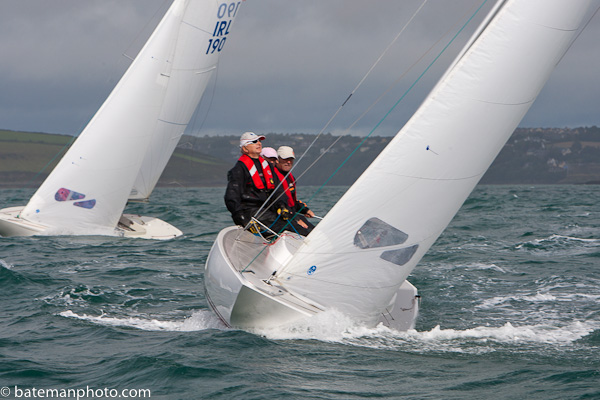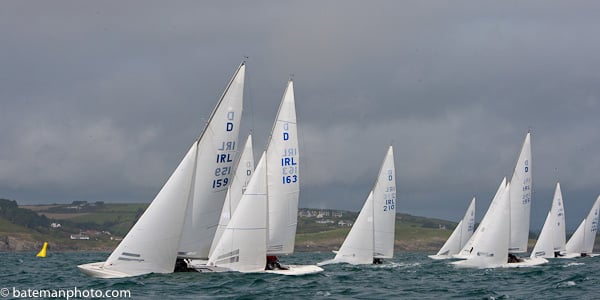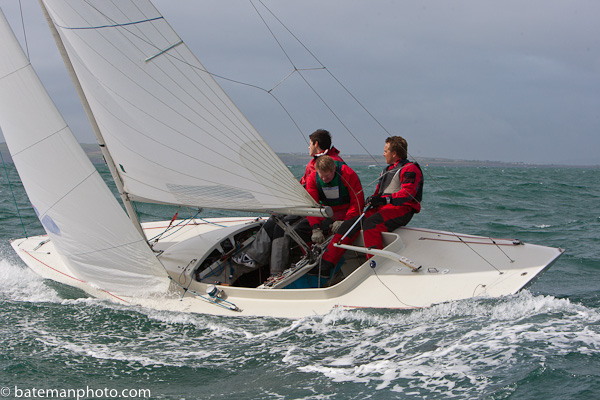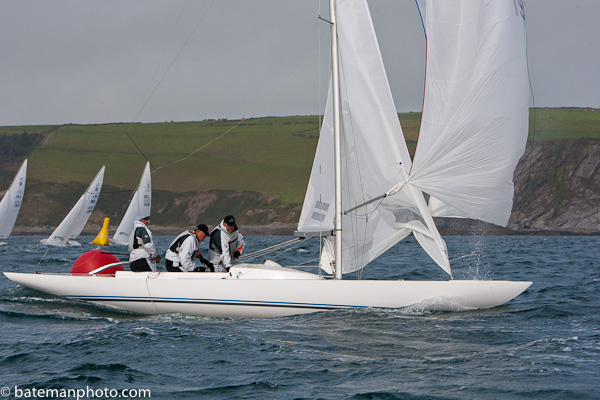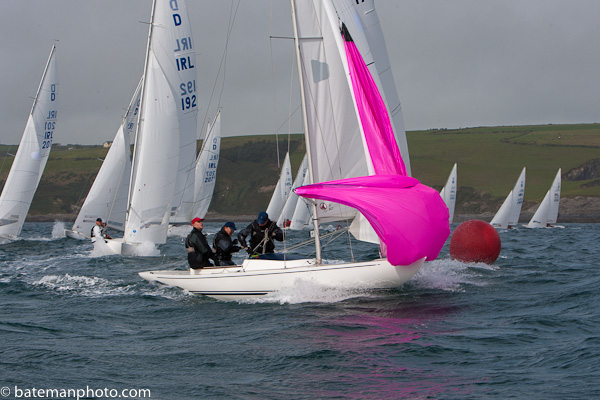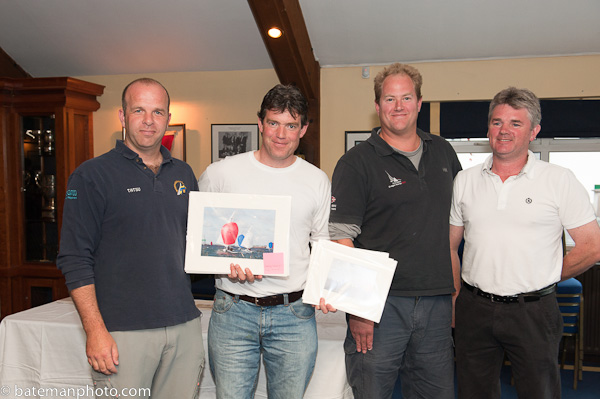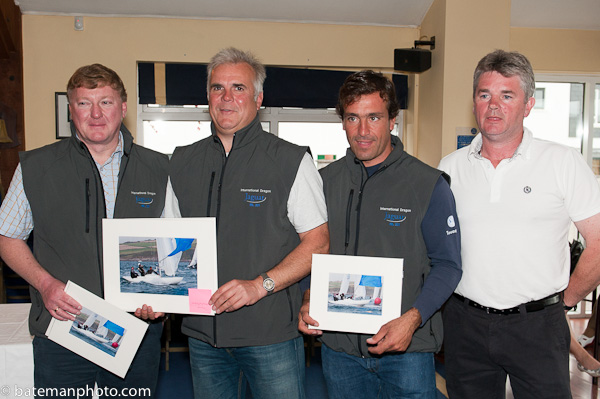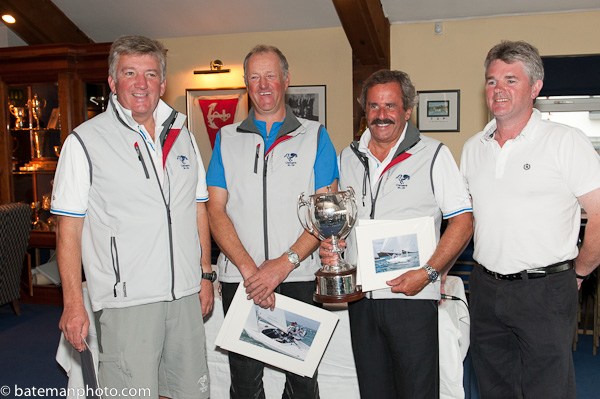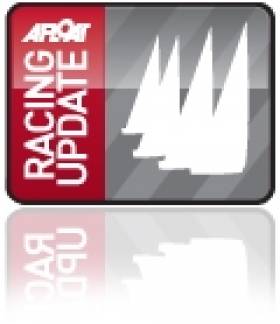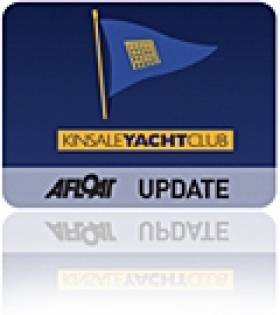Displaying items by tag: South Coast Championships
Elida Wins Class One of SCORA Championships
It was one of those weekends in Cork Harbour where the wind refused to play the game writes Claire Bateman. All was prepared and in readiness at Cove sailing Club for the McWilliam One Sail SCORA South Coast Championships on Saturday morning. They had the committee boat, the support RIBS, the marks and last but certainly not least they had acquired the services of the hard working Neil Prendeville as the PRO.
Setting up the committee boat off "Foxes Cover" in about 6 knots of wind the Race Officer sent off the fleets who started with great enthusiasm but alas and alack this wind did not hold but was quite happy to die and fill in again from a different direction only to die once more, making it a frustrating day for the sailors.
Sunday, if anything, was worse with the wind boxing the compass. Despite the lack of wind the fleets did manage to complete one shortened round thus enabling a result for the Championships.
OVERALL RESULTS:
In Class One IRC Ria Lyden in Elida was first with Colman Garvey in True Pennance second. This situation was repeated in ECHO.
In Class Two IRC Vinnie Delaney's Yanks & Ffrancs was first with the other Corby 25 Denis Coleman's Thunderbird second.
In Class Two ECHO Yanks & Ffrancs again prevailed with Leonard Donnery's No Gnomes in second place.
In Class Three IRC Niall Kelly's WOT Like took first place with Dominic Losty's Woody second.
In Class Three ECHO it was Fergus Coughlan's White Knight took the win followed by Liam and Pat Coakley's J24 JAY.
In Class Four IRC Two GK 24s fought it out with Mike Sexton's Granny Knot beating Kevin O'Connell's Gaelic Kiwi into second place.
In Class Four ECHO Granny Knot again took the win with Peter Webster's Thistle in second place.
Craig Lifts South Coast Dragon Title
Andrew Craig won the first race with the current National Champion Martin Byrne's Jaguar (IRL201) finishing second and Kinsale's Little Fella (IRL211) helmed by Cameron Good and crewed by Simon Furney and Henry Kingston in third.
Martin Byrne with Adam Winkelman and Pedro De Andrade won the final race, their third bullet of the regatta, and Andrew Craig finished in second to clinch the title. Garry Treacy's Dublin Bay (IRL198) crewed by Olympic Star campaigners, his son Max and Anthony Shanks, took third place.
The Royal St George Yacht Club's Andrew Craig was followed by fellow club member Martin Byrne in second place overall with Kinsale Yacht Club's Cameron Good in third and James Matthews in fourth. The George completed the podium with Garry Treacy in fifth and Neil Hegarty in sixth.
At the prize-giving Andrew Craig complemented Kinsale Dragon fleet Class Captain Anthony O'Neill on an excellent regatta.
Overall Standings;
1. IRL192 Chimaera Andrew Craig RStGYC
2. IRL201 Jaguar Martin Byrne RStGYC
3. IRL211 Little Fella Cameron Good KYC
Race 5
1. IRL192 Chimaera Andrew Craig RStGYC
2. IRL211 Little Fella Cameron Good KYC
3. IRL201 Jaguar Martin Byrne RStGYC
Race 6
1. IRL201 Jaguar Martin Byrne RStGYC
2. IRL192 Chimaera Andrew Craig RStGYC
3. IRL198 Dublin Bay Garry Treacy RStGYC
Full results HERE
The 2011 Dragon Irish National and Open Championship will be held at Kinsale, the venue for the 2012 Dragon Gold Cup.
